
Enhancing Student Outcomes and Teacher Practice through Math Mastery: A Comprehensive Study Tour and Curriculum Framework Development.
As a primary school teacher with ten years of classroom experience, I’ve had the opportunity to teach across year levels from Prep to Year 3. Throughout my teaching journey, I’ve developed a strong passion for ensuring that every student feels a sense of success in the classroom and equally, that every teacher feels confident and equipped to deliver high-quality lessons. Over time, I’ve become increasingly interested in how we can bring greater consistency and clarity to the way we teach mathematics across the early years.
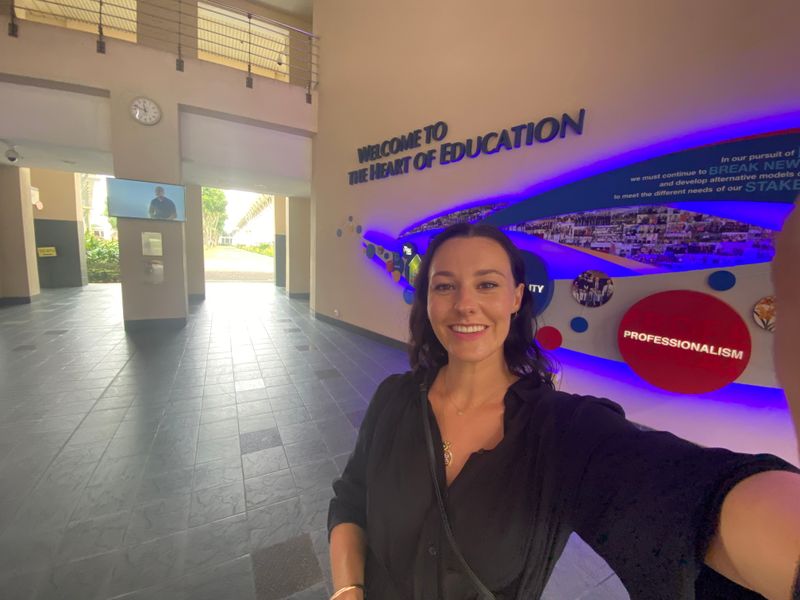
In 2024, I was fortunate to be awarded the inaugural Toowoomba Grammar School Teaching Fellowship to explore this interest more. My proposal, titled Enhancing Student Outcomes and Teacher Practice through Math Mastery: A Comprehensive Study Tour and Curriculum Framework Development, focused on investigating how the Math Mastery approach could strengthen both student understanding and teacher instruction in mathematics. This opportunity took me to Singapore to investigate the Math Mastery approach - an internationally recognised model of mathematics instruction that supports every student to achieve deep understanding through carefully sequenced, explicit teaching.
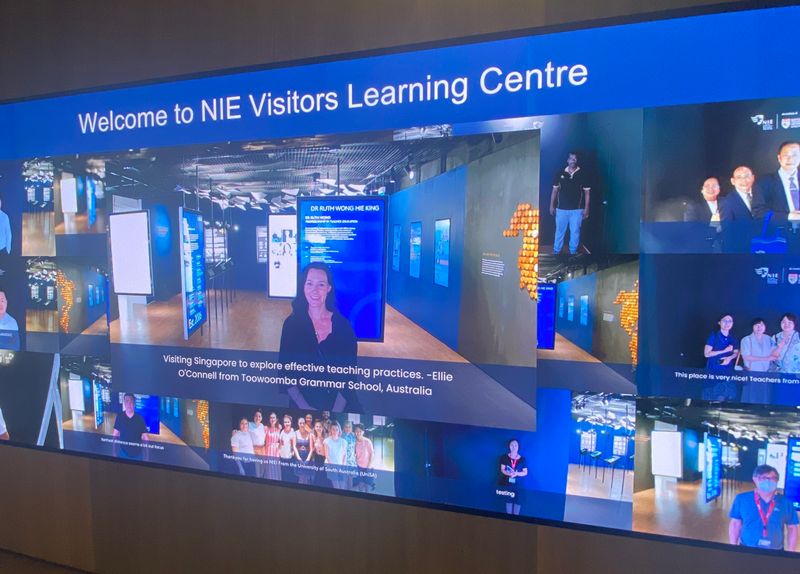
Why Mathematics? Why Now?
Across Australia, there is growing national concern about the long-term decline in mathematics achievement. Reports such as the Gonski Review (2018) highlight that many students are not mastering the basic skills needed for future learning, and that teachers need more explicit, structured tools to support all learners. In the early years of schooling—where concepts are first introduced, and mathematical mindsets are formed—it’s crucial that instruction is clear, consistent and effective. Gaps in understanding at this stage can have long-lasting effects on a child’s confidence and progress. The fellowship was an opportunity to examine international best practices and bring back evidence-informed strategies that could enhance both student outcomes and teacher practice in our own School.
Learning from Singapore: Schools and Insights
During my study tour in Singapore, I visited two leading international schools: Dulwich College and Invictus International School. Both schools use mastery-based approaches to mathematics, with structured, well-sequenced programs designed to develop deep conceptual understanding. At Dulwich College I observed math lessons from Years 1 to 5 that emphasised both mastery and practical application. The classrooms fostered a calm, focused learning environment in which teachers guided students through new concepts using clear, structured instruction, ensuring mastery through modelling, guided practice and checking for understanding before progressing. I also engaged in discussions with the school’s mathematics leadership team, who shared their planning processes and how they support teachers to differentiate within whole-class teaching.
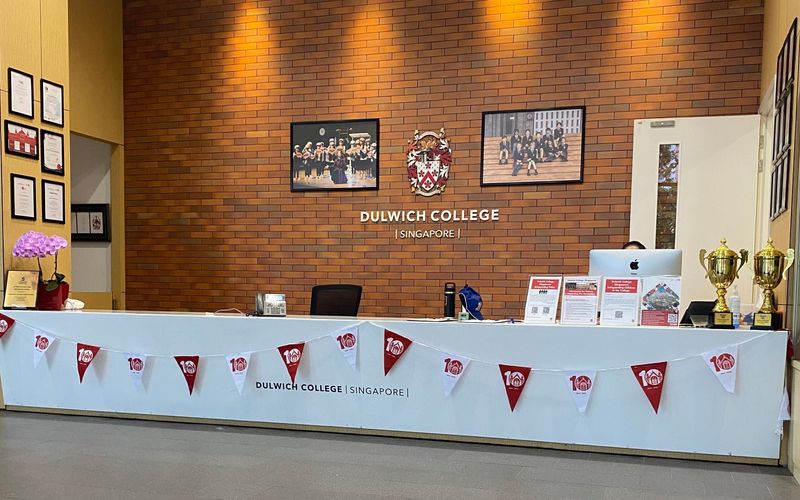
Invictus International School offered a contrasting yet equally valuable perspective. With a diverse cohort of learners and a flexible curriculum model, their team demonstrated how mastery principles can be embedded in a range of contexts. I also had the opportunity to meet with local educational consultants and curriculum developers, who offered insights into how Singapore’s national curriculum supports cumulative learning, daily review and concept mastery from the early years onwards.
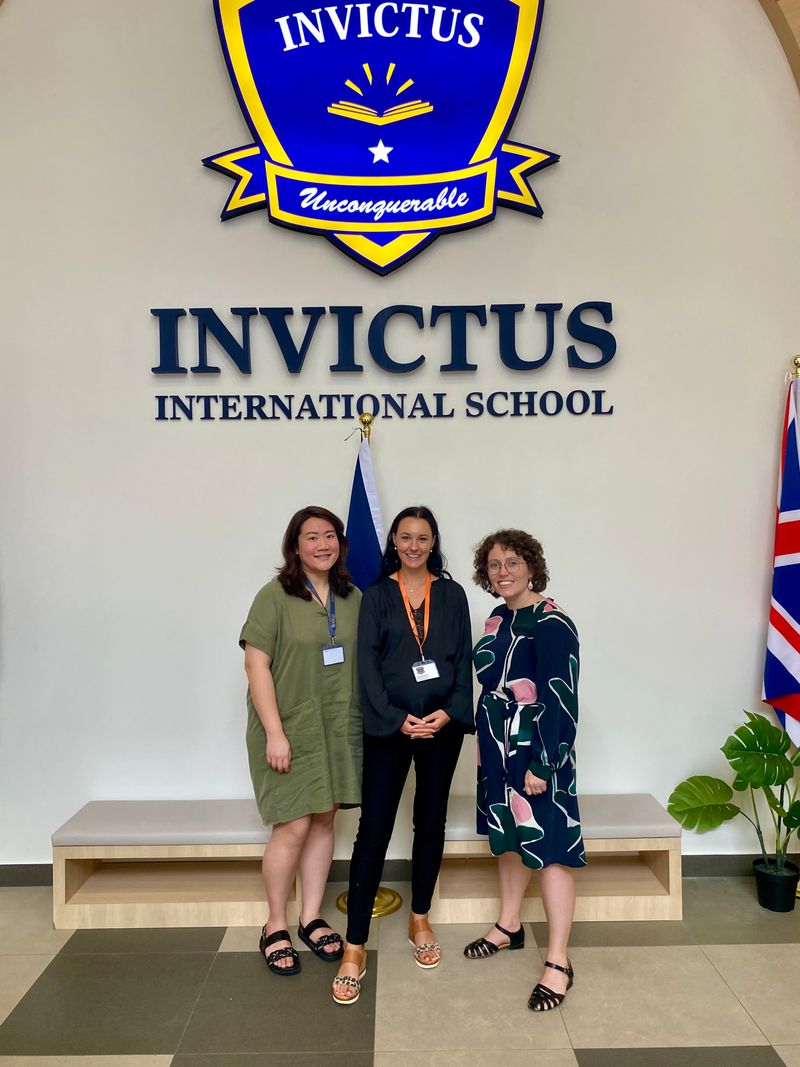
Key Findings: What Makes Mastery Work?
My observations confirmed the power of structured, explicit teaching in building strong foundations in mathematics. These were the key elements that stood out across all settings:
- Clear Learning Objectives
Teachers clearly define what students need to know and be able to do at the end of each unit or lesson.
- Whole-Class Instruction with Embedded Differentiation
Rather than streaming students by ability, mastery classrooms taught concepts to the whole class while using questioning, scaffolding and targeted support to meet individual needs.
- Corrective Instruction
Students who don't achieve mastery receive additional instruction or support to address knowledge gaps.
- Cumulative, Carefully Sequenced Learning
Each lesson built directly on the last, with time allocated for review and consolidation. This ensured that no student was left behind and that concepts were truly understood before new material was introduced.
- Mathematical Language and Reasoning
Teachers modelled precise vocabulary and encouraged students to explain their thinking. This supported deeper reasoning and helped students internalise core concepts.
- Learning Routines
Clear instructional routines and behaviours are established in every classroom, reinforcing expectations and supporting learning.
- Lesson Resources
Hands-on materials and visual examples are carefully chosen to help students connect with new concepts in ways that suit their learning needs.
- Fluency
Essential number facts are practised until automatic, helping students reduce cognitive load, enhancing students’ ability to focus on new and more complex ideas.
- Calm, Confident Learners
Most powerfully, students appeared confident, focused and proud of their mathematical thinking. The clear structure and shared learning journey contributed to a positive and inclusive classroom culture.
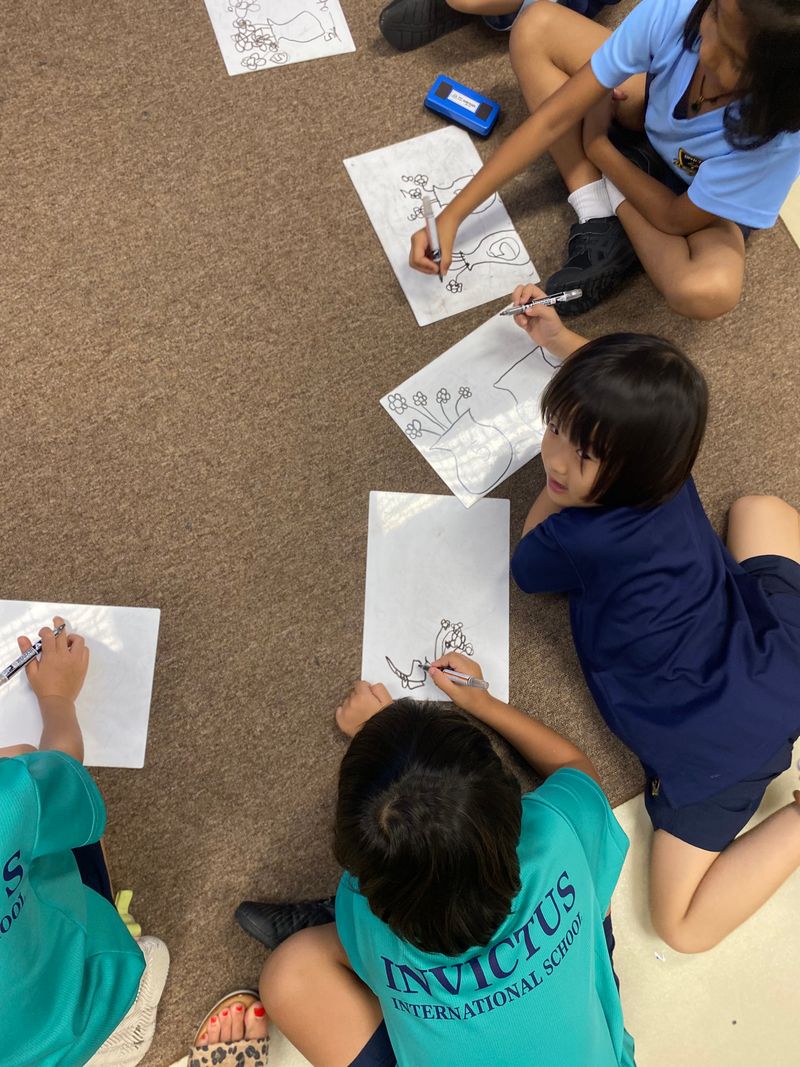
Global Perspective: Insights from Kinder World School
As a part of my research, I was able to engage in a conversation with Peter Baker, Principal Supervisor of 13 KinderWorld International Schools across Vietnam, I was able to dive deeper into how the Math Mastery approach works in large, diverse educational settings. These schools have adopted the Singapore Math model, a mastery-based framework built around explicit teaching and cumulative learning - many of the same principles I explored during my study tour.
Peter shared that their decision to adopt this approach was driven by a need for a consistent, evidence-based program that teachers could pick up quickly, deliver confidently and implement cost-effectively. “We started the explicit teaching model a couple of years back,” he explained. “We call it the KinderWorld Model. Retrieval practice to strengthen knowledge and problem-based application of learning is also included. I think it certainly makes a difference.”
What stood out to me in our discussion was just how closely their journey mirrors our own at TGS. We have already embedded strong practices in literacy through well-structured, whole-school programs that align with explicit teaching and the science of learning. However, mathematics remains an area where we see room for greater consistency and greater gains.
While our data confirms that we continue to perform above the state average in mathematics, recent NAPLAN results highlight a national decline in numeracy - a trend that we are aiming to avoid in our own School’s results. While we continue to do well, we have an opportunity and a responsibility to do even better for our boys. This is not just a local issue. In 2015, the Office of the Chief Scientist collaborated with ACARA to examine schools across Australia that had made significant improvements in numeracy over two years. Their report found that mastery-oriented environments were a consistent feature in high-performing schools (Smith et al., 2028).
When I asked Peter how the performance of his students compared to their peers in Australia, his response was compelling:
“We’ve had feedback from parents - many of whom are teachers - saying that when their children return to Australia, they are at least one to two years ahead in mathematics compared to their peers at home.”
This reinforces what global research has been saying for some time: structured, explicit, mastery-based teaching works. And more importantly, it works for all learners - not just the confident few.
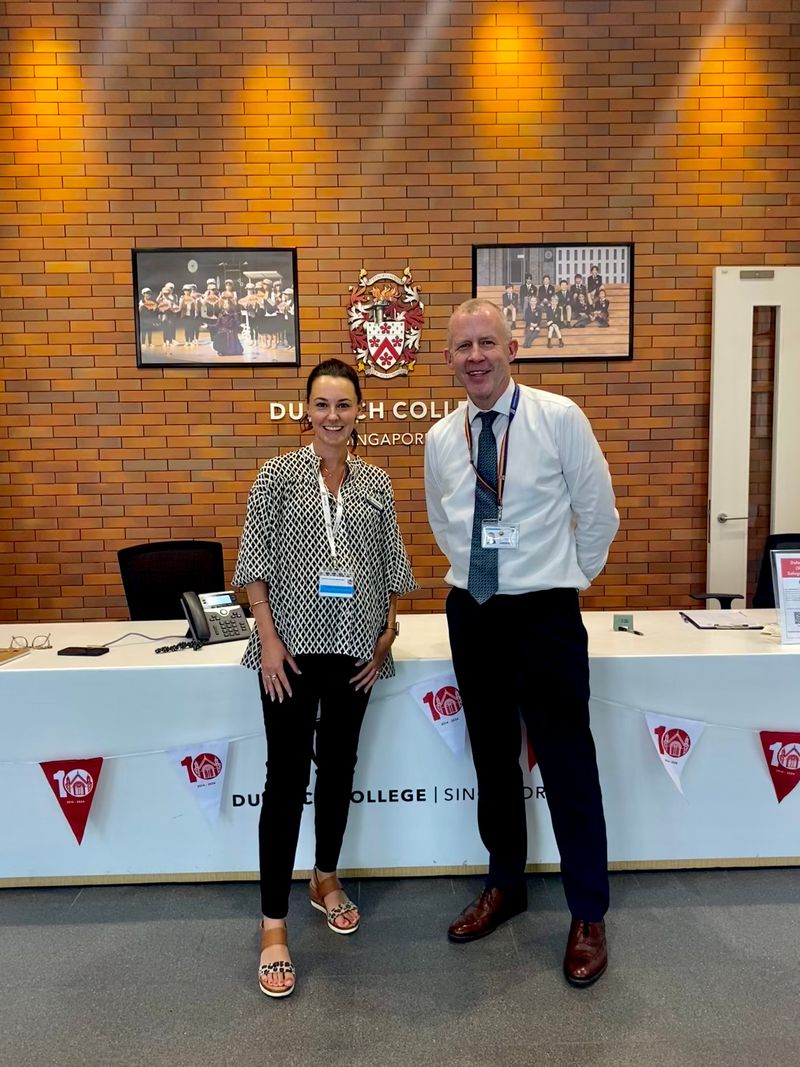
Bringing It Home: What’s Next for TGS?
I’m incredibly grateful for the opportunity this fellowship has provided - not only in shaping and deepening my own practice, but in contributing to a broader, shared vision for mathematics at TGS. This experience reinforced my belief that every student can succeed in mathematics when we give them the right tools, time and teaching. We are now laying the foundations for a clear and united approach to numeracy, one that will equip every boy with the confidence and skills to succeed - not just in the classroom, but throughout their schooling and beyond. And just as importantly, we’re building a community of confident teachers who are equipped to deliver lessons that are clear, consistent and deeply impactful.
I would like to sincerely thank Dr John Kinniburgh for granting me the opportunity to undertake this Fellowship. His support and encouragement throughout the process has been instrumental, and I am truly grateful for his guidance and mentorship. Dr Kinniburgh’s commitment to prioritising high-quality professional development for staff continues to shape a culture of growth and excellence in teaching and learning at TGS.
Latest Blog
TGS Puts Boys’ Online Safety First with Global EdTech Honour
This year, Toowoomba Grammar School was honoured at the Global EdTech Awards, becoming the only Australian school to receive recognition in this category of the prestigious international program. While the category - Best Network Manager - may not often make headlines, it celebrates the quiet achievers who empower learning, protect students and enable innovation. Arthur C. Clarke once said, “Any sufficiently advanced technology is indistinguishable from magic.” If that’s true, then network…
Ompelliargo - Episode 2 - School House: A Gothic Revival at the Heart of TGS
School House in 1907 Constructed in 1875, School House is more than just a structure - it’s a symbol of the community’s commitment to education and a cornerstone of the School’s heritage. Designed by Toowoomba architect Willoughby Powell and built by local craftsman John William Garget, the building reflects the Gothic Revival style, a design language that blends classical proportions with pointed arches, intricate fretwork and a sense of grandeur. Heritage architect Ms Stephanie Keays, a…
The Power of Character and Connection Every Day
As we mark R U OK? Day, it’s a timely reminder of the importance of looking out for one another and staying connected. Whilst today is a National Day of Action, the message is clear: asking “R U OK?” should not be reserved for just one day of the year. By having regular, meaningful conversations with each other, we create trust and normalise talking about what’s really going on in our lives. This simple but powerful practice ensures that when someone is struggling, they know they have a…
Managing Conflict with Pre-Teens and Teenagers
Understanding the developmental challenges of our boys, particularly in managing emotional resilience and independence, helps parents navigate these moments more effectively. Conflict is a natural and inevitable part of adolescence, and for parents of preteens and teenagers at Toowoomba Grammar School, managing these moments effectively is key to nurturing their emotional growth and maintaining a healthy relationship.
Elevating Early Years Mathematics: Insights from a Global Teaching Fellowship
As a primary school teacher with ten years of classroom experience, I’ve had the opportunity to teach across year levels from Prep to Year 3. Throughout my teaching journey, I’ve developed a strong passion for ensuring that every student feels a sense of success in the classroom and equally, that every teacher feels confident and equipped to deliver high-quality lessons. Over time, I’ve become increasingly interested in how we can bring greater consistency and clarity to the way we teach…
Innovation at TGS: Preparing Boys for a Future of Possibilities
This commitment is reflected in how, for generations, our Old Boys have maintained strong connections with the School and their region, demonstrating a dedication to making a meaningful difference in the world. Having students who are able to think critically and evolve with technology will prepare them better for the workforce. Honouring the Past, Preparing for the Future The Grammar 150 celebrations this year offer a special opportunity to reflect on the significant contributions of our…
Remembering CMDR Rowley Alan Waddell-Wood
Rowley was born in Moree, NSW on 30 July 1932 and moved to a property on the Darling Downs at an early age. He attended Esk State School followed by two years at Toowoomba Grammar School (1946-47). After completing his schooling, he worked on the family property and then as a Trainee Executive at Coles in Brisbane. Always fascinated by flying and the Fleet Air Arm, Rowley signed up for a short service engagement in March 1954, aged 22. After completing basic training at HMAS Cerberus, he was…
75 Years of Rivalry and Respect
This year’s match holds special meaning, as it marks 75 years since the very first O’Callaghan Cup clash in 1950. Among those who remember the early days is Malcolm Powell, a proud TGS Old Boy (1948-52) who played fullback for the First XV in 1951. Malcolm, now in his nineties, still vividly recalls the thrill of those early games. “I watched the first Cup from the sidelines, I was in the Thirds that year,” Malcolm recalls. The fiercest of rivals but the greatest of friends “Downlands won that…
Our Sesquicentenary
The day was filled with reflection, celebration and a deep sense of connection to the generations who have shaped the School’s legacy. From the opening of a time capsule sealed in 1975, to a Sesquicentenary Assembly that honoured our roots and looked to the future, the occasion was a powerful reminder of what it means to be part of the TGS community. And of course there was cake! A Message Across Time: Opening the 1975 Time Capsule